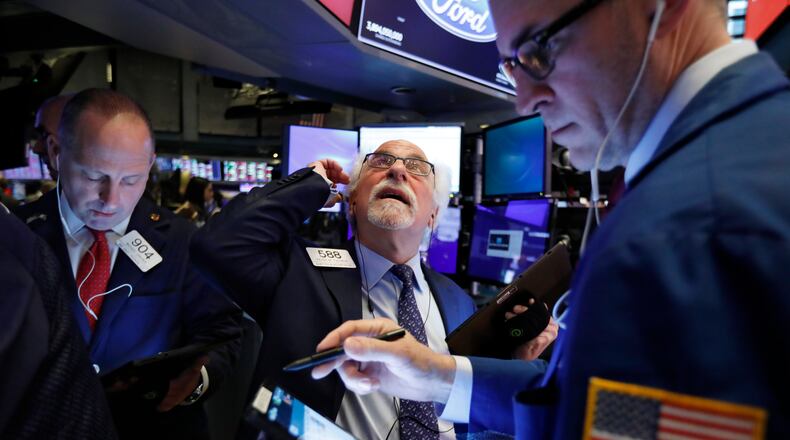The stock market took a hit Monday and so did lots of Americans' 401(k)s. But at times like these, investment advisers suggest people keep their cool.
Major U.S. stock indexes closed more than 3% lower, their biggest single-day loss since February 2018, amid growing concern the spread of the coronavirus could hurt global economic growth.
That’s not great. Still, the S&P 500, a popular gauge of U.S. stocks, is essentially flat with where it started February and slightly lower than where it sat at the end of last year after falling 3.4% Monday. The S&P 500 is still about 15% higher than it was around this time last year.
Keep a few things in mind, says Robert Balentine, chairman of Atlanta-based wealth management firm Balentine.
— Try not to let emotion cloud investment decisions.
— Stick to overall investing strategies.
— Make sure that what your investing in fits your age and risk levels.
“Markets as a whole tend to shoot first and ask questions later,” Balentine said.
Watching balances in retirement accounts dip isn’t pleasant. But, he said, “reacting from an emotional standpoint is not the smartest thing to do.”
For Main Street investors “with a 401(k), as long as they have the right asset allocations relative to their age and risk level, this type of volatility really should not be a concern.”
Stock markets are volatile and pullbacks of 5% to 10% happen, he said.
Meanwhile, the overall health of the U.S. economy appears to be good. With that in mind, “the market’s decline should be viewed as a buy opportunity if nothing else,” he said.
Still, there have been questions about how long stock markets will rise before there is a major correction. Last year, the markets rose far faster than the overall U.S. economy did. And there are expectations that some growth forecasts for other nations are being rethought.
About the Author
Keep Reading
The Latest
Featured




